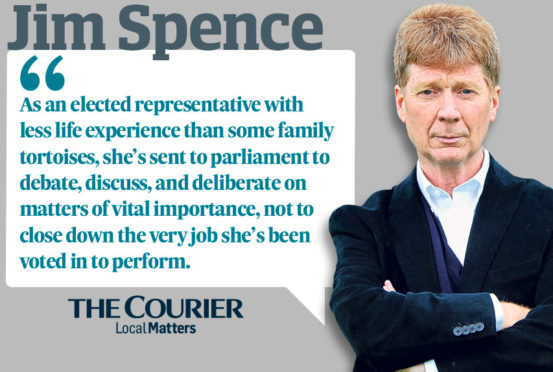Two opposing worlds are currently doing battle in our daily lives and conversations, and they’re heading for a collision if free speech is to be maintained.
Firstly, there’s the normal sane sphere, and then there’s the zany planet inhabited by some folk who use social media, and Twitter in particular.
In the first one, people have normal conversations and disagreements and settle them in a civilised fashion, agreeing to disagree or accepting that they got the wrong end of the stick and conceding some ground in the process.
In the netherworld of social media however, different tactics and rules of engagement apply.
There, some people often anonymously, abuse, accuse, berate, defame, and lie about those they disagree with.
All of this would be bad enough if traditional media was in a healthier state but in the current climate where journalism is ailing and jobs haemorrhaging, those attempting to hold people with power accountable for their actions are an endangered species.
That’s good news though for some social media warriors and their practice of spinning half truths and deceptions.
In the world of the social media zealot, journalists who disagree with their partisan view of things are part of the establishment.
In their embittered worldview you’re either with them or against them.
Some slogans testify to their intemperance.
“Tory scum out”
“Silence is violence”
“ACAB”
Serious and weighty issues which require thoughtful discussion are reduced to marketing strap-lines.
No grey areas, or nuance, or pause for thought is allowed.
Any momentary hesitation while a difficult issue is pondered, immediately becomes irrefutable evidence of conspiracy and complicity with the enemy.
It’s even worse when those charged with maintaining democratic openness seek to undermine the very principle.
Last week, Labour MP Nadia Whittome suggested on Twitter: “We must not fetishise ‘debate’ as though debate is itself an innocuous, neutral act.”
Elected aged just 23, she’s been described as the baby of the house, and her infantile view validates that description.
Some young police officers and emergency service workers will by her tender age have dealt with murders, suicides, sudden deaths, carnage on the roads, serious assaults, domestic abuse cases, and people with a variety of mental health issues.
They’ll deal daily with life-changing situations, which tax their temperament and stomach for grim sights to the maximum, and for much less than half the wages of this naive MP.
As an elected representative with less life experience than some family tortoises, she’s sent to parliament to debate, discuss, and deliberate on matters of vital importance, not to close down the very job she’s been voted in to perform.
To reveal her lack of nous and understanding of democracy on Twitter is either an act of stupidity or playing to the gallery of the like-minded.
Her supporters ignore at their peril that if debate on contentious matters is silenced, then they may be next to be muted.
Debate on politics, gender, race, religion, and other fractious areas of life is being twisted and bent, by malcontents incapable of accepting that others are perfectly entitled to hold opposing views, or to present different facts.
The way to beat those with whom you disagree is surely to be armed with better arguments.
The current Covid crisis has also allowed full vent to every Twitter conspiracy theorist to challenge and denigrate scientific experts and those holding other opinions, with the kind of venom which if said face to face, would lead to a trip to an A&E ward.
The vicious debate surrounding Scottish independence is another example of the current madness of crowds on social media.
Last week I saw a successful businessman launch a sweary Twitter diatribe at a former broadcasting colleague for perceived bias.
Winning hearts and minds is rarely achieved by screeching abuse at opponents, or those who have a different view.
Some who glory in the current travails of traditional media simply can’t stomach debate or differing opinion.
They seek to crush and suppress any alternative viewpoint, and they’re happy to achieve that by using the same tactics which in future could stop them expressing their own thoughts.
Aspersion, fabrication and falsehoods are no substitute for democratic deliberation.
There is nothing wrong with lively and impassioned argument, but social media has taken us into the grim depths of Dante’s seventh circle of hell, and now the flames are licking around the feet of civilised discussion.
In my honorary role as Dundee University rector, I’m a great believer in the benefits of education for opening and liberating minds.
However, on social media we’re seeing the opposite of that.
A vituperative minority, ineluctably convinced of their own superiority and incapable of listening to other points of view, are placing free democratic argument in jeopardy.
They may be small in number but their influence is disproportionate and damming in the debilitating effect they’re having on common discourse and civility.
The irony is that their illiberal behaviour may one day be used to silence their very own views.

